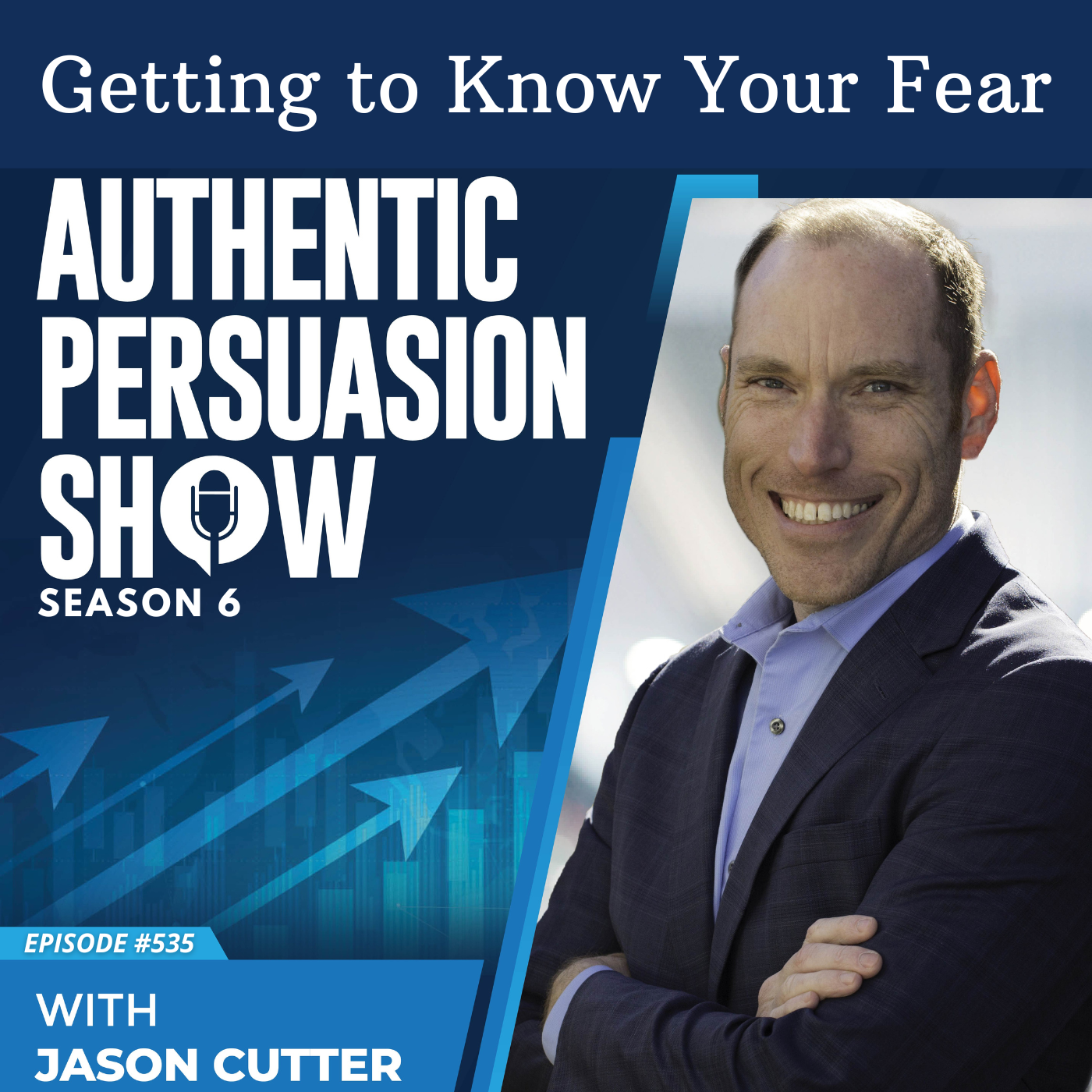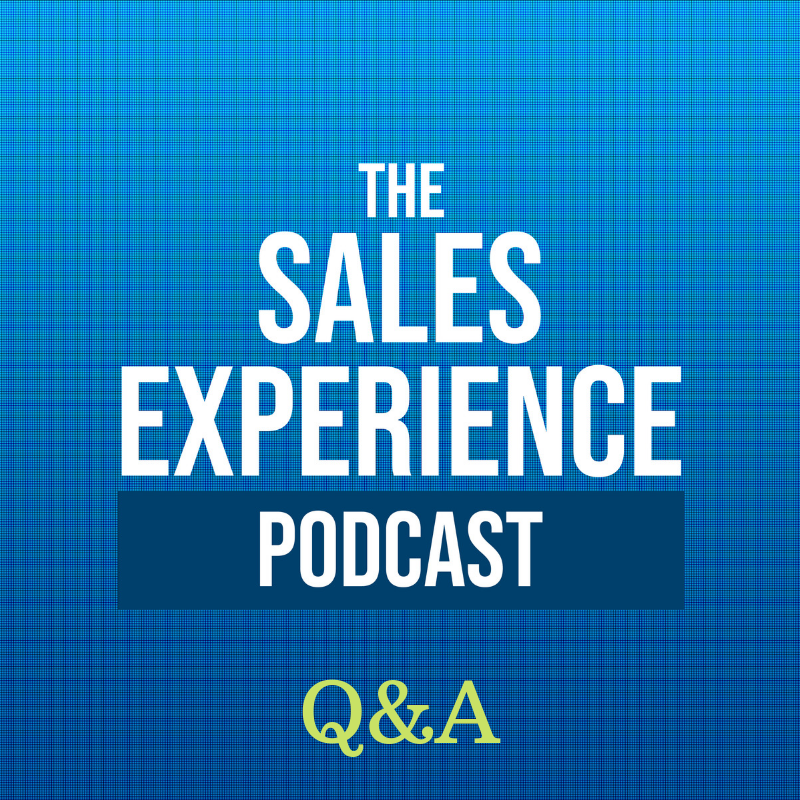Episode Transcript
[00:00:00] Speaker A: Welcome to the authentic Persuasion show. On this episode, I want to replay part of a previous show. Maybe you heard the original full length episode and this could be a great refresher and reminder. Or maybe this is your first time hearing this content and the timing could be just right to help you leverage authentic persuasion today in your role, no matter what. Here's to your success.
This is the authentic persuasion show.
[00:00:26] Speaker B: And if you look at every hero's journey, every story, every movie, things like that, that's what the guide's doing. There's always that point in the movie where the hero, the soon to be hero, like the focus of the story, where they have that crisis of faith, crisis of meaning, crisis of events, where something happens, they were on a good path, then it starts to fail. They lose, somebody in their life dies, they lose a battle with the bad guy in the movie, and they take a step back and they have a crisis thinking, who am I? And the guide always reminds them of the path they're on and why they're on this path.
[00:01:08] Speaker C: Right?
[00:01:08] Speaker B: Think about that. In, in most all of the hero stories, hero journey movies that you can think of, the Star wars, the Harry Potters, all of those where it's like there's that crisis moment, then there's the guide that helps them get back on the path and gets connected with why. You've got to know that why. And when you do, your follow up messages are coming completely different. Now, will it work all the time? No. Some people put their head back in the sand. Some people are busy with life. We're all busy with life. Things fall to the side. And so you're always going to have people where they still don't buy. You can't get a hold of them. But if you follow this process and integrate that into your follow ups, your follow ups will be more impactful, more effective when you're tying it to them. Again, this isn't, and this is my challenge with the end of the quarter.
I won't even say what I, what I feel about that stuff, but the end of the quarter manipulation, the end of the month manipulation, the end of the week manipulation, which is, hey, we're doing a special. If you sign up by the end of the quarter, like, here's this thing, and I'm going to give you this thing, and I'm basically bribing you to buy from me.
[00:02:13] Speaker C: Right?
[00:02:13] Speaker B: Which is what that is. It's purely manipulation. Not in the dirty sense of like, lying to people, but you're essentially bribing them to be a client, um, because it's the end of the quarter or it's the end of the year.
[00:02:24] Speaker C: Right.
[00:02:25] Speaker B: Which not always super bad for business. I would contest that. It probably is. Uh, if you look at those sales. Um, but here is the thing. Instead of those kinds of approaches where you're just hoping again that you can get them to take action, these kind of follow ups, even if it is at the end of the quarter. Hey, we're doing this thing and here's why this is important to you. You said this was an important initiative, right? I think of all the b, two b clients that I have or the ones that I've worked with, which is you said you had this initiative, you told me that this would be really important to you and that this would help you, your position, your department, the company heading into the next three months, next six months, the next twelve months. And I want to make sure that you stay on that path and this doesn't fall aside. The really good people in sales use that kind of approach where it's not just it's the end of the quarter and I want to hit my numbers, it's.
You said this was important to you and I want to make sure we do it because I know that if you don't do it, I don't know what's going to happen to you and you might not hit those goals. And then I feel responsible for not doing my part to support you. So focus on that. When you do that, when you do your follow ups in your emails, your messages, your texts, that will be more effective. So hopefully that helps. Hopefully that will help you avoid the follow up trap. And again, you're never going to close 100% of the people, 100% of the time. Amazing salespeople close 30%, 40%, 20%, depending on your industry, depending on what part you're measuring.
[00:03:55] Speaker C: Right.
[00:03:56] Speaker B: If, is it a, is it a warm lead and a transfer or an inbound call or an appointment set by somebody and that to a closed deal? Some people have really high percentages, but it's because they've already qualified that lead and that's different. But you're never going to close 100%, so just keep that in mind. But with the, what you can do is you can move the needle in your favor to get those follow ups to be more effective. The other thing you can do is to make sure that you're setting strong follow ups. A lot of people I see are when they end up having to do a follow up or when it gets to that point, they're saying, okay, well, here's my information. Just let me know. Or talk to your uncle Bob and I'll wait to hear back from you. Or I'll follow up with you next week and see what you want to do. And that's not effective. And there's way more effective things to do for that. If you want that information, you want my tips for that, email me. Jasonutterconsulting group.com dot happy to share that as well, because there's a good way to set that follow up and make it really strong. It's not rocket science, but a lot of people don't do. A lot of people who I see acting more like order takers are avoiding that step and not doing that effectively. Effectively.
![[750] Impactful Sales Follow-Ups](https://episodes.castos.com/salesexperiencepodcast/images/1725913/c1a-4d8w-ddkx35q6b1q9-lanmad.png)


